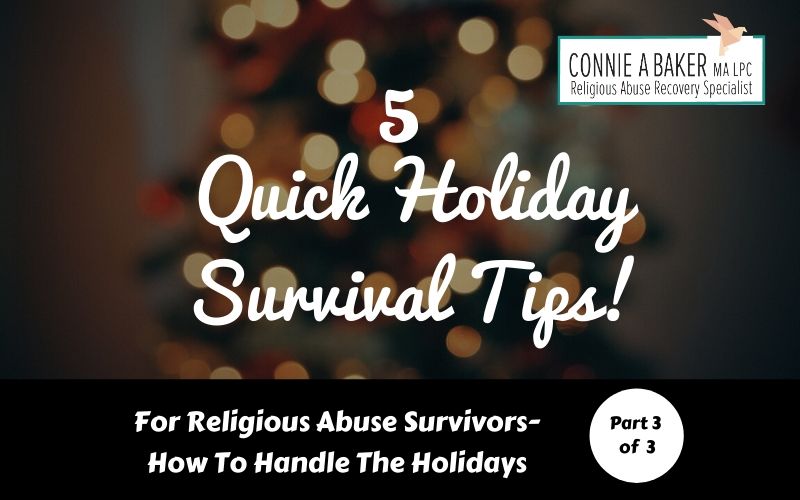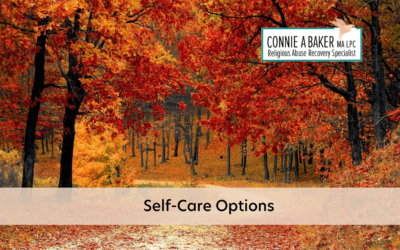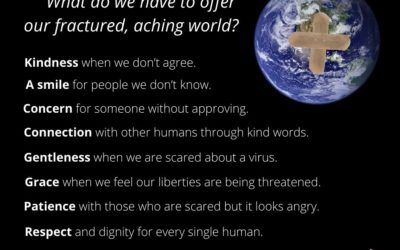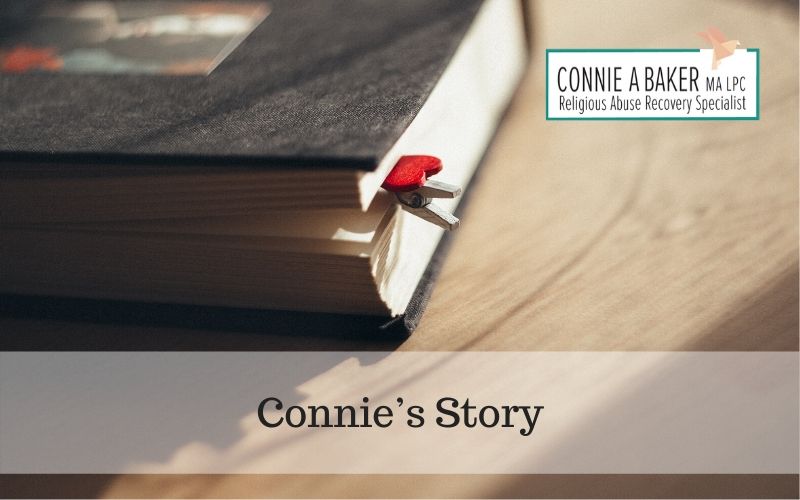The news has been recently filled with people coming forward about abuse.
Sexual abuse, religious abuse and so much more. The reactions are varied.
Some people are cheering on the survivors.
Some people are questioning why the victims didn’t come forward earlier.
Some people are worried people are being falsely accused.
There are so many types of abuse that are real and devastating:
sexual abuse
religious abuse
psychological abuse
financial abuse
verbal abuse
physical abuse
and many other types of abuse.
Just a few months ago, I posted my story of sexual and religious abuse on YouTube. (See it here)
Here was my main concern:
What if people were going to be hurt by the telling of my story??
Not the abuser…
But the lives close to the abuser.
Lives that I cared about.
People who had something to lose.
People who were in my life at the time.
What if they were hurt??
If I tell my story, who would be impacted and how??
There were several individual abusers involved in my story. For the months and years leading up to posting the video, I thought often about the people that would be impacted by it. I thought about the wives of my abusers. I thought about their children. I thought about their grandchildren. I thought about their “ministries” and their reputation.
Weren’t the feelings of the friends and families of these men and their reputation of the institutions they represented more important than my desire to tell my story?
Some of you will look at that question and say, “Of COURSE not! Why silence the victim (of any abuse or crime) to protect the perpetrator’s family??”
Some of the more sensitive types (like me) worry and wrestle with the ethics and humanity involved with telling my story when it involves someone else’s story.
By my telling the story, some people who I have loved for decades would be impacted. THAT was the rub. Most of the time, my first instinct is to protect. (Ha! Look at my story of abuse, right??) I wanted to protect people – especially those that were still close to my heart.
Interestingly, that desire to protect is often what entrapped us in the abuse in the first place. We are asked consistently by our abuser to protect them from the consequences of their actions.
So….
We protect the abuser.
We protect our parents.
We protect our siblings.
We protect our family.
We protect our friends.
We protect our schools.
We protect our church.
No wonder it is difficult to tell our story when we are wired to protect and keep silent.
As a therapist, I knew why my clients had often made the choice to tell their story of abuse (either publicly or privately). It was very clear to me that this was OK when it was their story! Before we look at reasons why it’s OK to tell your story, let me say this:
You do not have to tell your story.
Some of you are ready and waiting for permission and courage to speak out.
Others of you are nowhere NEAR ready. That’s OK! I wasn’t ready to tell my story publicly for years and years.
Some of you have never told your story to another human being. That’s OK!
Some of you have chosen to not tell your story to your family, community or in a public setting. That’s OK!
The telling of our story to another person or on a public platform is a weighty decision that deserves a lot of consideration. It takes time! So hear me: there is no pressure to tell your story. YOU can make that choice. (Note: I do hope you can eventually tell it to at least one other person – and more if you need to – for the healing of your own heart.)
So let’s take a look at…
WHY ITS OK TO TELL MY STORY EVEN IF IT CAUSES SOMEONE ELSE PAIN.
The first reason involves basic logistics.
- It’s OK to tell my story because if I wait to tell my story until no one is affected, uncomfortable or caused pain, MY STORY MIGHT NEVER BE TOLD.
- There is a very high likelihood that I will not outlive my abusers’ children and grandchildren. Most of the time if survivors tell their stories, there is someone (even besides the abuser) that will not like it. Someone will be negatively affected.
2. It’s OK to tell my story because it can bring HEALING
- Telling my story of abuse is a significant part of my (and any survivor’s) healing. Putting into words and telling who we want to tell (even if it is public) is the foundation to abuse healing. I watch it daily in my office.
- Telling my story allows me as a survivor to take control of the narrative for myself and give an alternative narrative to others. The story I told myself about my abuse in the early days had a lot of damaging distortions.
- “It was my fault.”
- “If I just had done _____, I could have salvaged the situation.”
- “What happened to me was probably not as damaging as I’m making it out to be.”
- “I will never be able to recover and live a whole, happy life.”
I now get to tell the story, bring it in line with reality, tell it more constructively and tell it how *I* want it told. It’s mine. I can do that. And I told my distorted narrative to others publicly (remember I had to confess my “sin” in front of the church). Telling my story provides an alternative for those who heard a previous distorted version.
- Telling my story keeps my story from being forgotten. My story is important. Your story is important. EVERY story is important. Our stories are important to ourselves and to others.
- Telling the story breaks the power of shame for the teller and the listener. Every person who has been abused feels shame. It is intrinsic to the abuse experience. Shame dissipates when the survivor talks about it and is then met with belief, acceptance, love and support. Even the shame of other survivors listening to the story can decrease because they know they are not alone.
- When I tell my story, I hear how wrong and abnormal the abuse sounds when it has felt normal for all these years. So many of us thought what happened to us was within the realm of “normal”. Often when we hear ourselves talk about the abuse (and watch other people’s reactions) it is a mirror reflecting back to us the craziness and darkness of what really happened.
3. It’s OK to tell my story because it BREAKS THE SILENCE AND EXPOSES THE SECRETS
- There is an enforced silence surrounding any abuse and it is a primary cause of pain for the survivor – a primary element of the abuse itself. Silence about anything shameful or painful is toxic – silence adds to the pain. It is impossible for abuse to thrive in exposure. Victims of abuse are often threatened with horrible things if they talk about what is happening to them. Breaking the silence is essential for healing.
- Telling my story validates other survivor’s stories and gives them the courage to break the silence they live in. When survivors hear another person’s story and find their own story reflected in that, it is profoundly validating. Sometimes it gives the extra shot of courage they need to start their own journey of speaking and healing and to bring to light what has been in the dark.
- When I bring the abuse to light it loses its power in me, in other survivors and in society as a whole. Secrets and shame are powerful. When they are exposed, they lose power. It’s a dynamic I see in my office almost daily. The beauty of a publicly told story is that secrecy and shame are immediately weakened – and that goes as broadly as the story is heard! We are seeing that right now with big names being exposed for their rampant sexual abuse.
- Telling my story breaks the isolation of the other survivors and hearers. Isolation is a potent catalyst for pain, personal destruction and (we now know through science) even death. Connection with other human beings I believe is an even more potent catalyst for health, personal growth, and life. When I tell my story, other survivors feel less alone, less crazy, less confused and MORE connected, grounded, sane and aware.
- It is ALWAYS the choice of the survivor who they tell either publicly or privately. No one should be allowed to dictate what another person tells. When someone is abused, the power is taken away from them to speak. If the family or institution connected to the survivor are allowed to determine when and how someone tells their story, it is a re-traumatizing, re-trapping re-abusing dynamic with the power being given once more to the perpetrator and being taken away from the victim. Survivors retain the right to tell their story on their terms.
4. It’s OK to tell my story TO BRING AWARENESS
- Telling my story with concrete details helps expose the problem and give clarity to those who may be going through it. When someone only says they were physically abused, the idea is allowed to remain vague in our minds. We don’t know what that means concretely and we are able to keep more distance from it. When someone says they were tied to a bed a beaten with a stick, we can no longer keep it vague in our hearts and minds. The problem is more real to us. Sometimes people don’t know that being patted on the bottom by a boss is sexual assault – even though they feel horribly violated. Details matter.
- Denial surrounds abusive systems and telling the story breaks the denial. When consistent abuse is allowed to continue in a family, a workplace, a religious institution or in any system, there has to be a lot of minimizing, denying, excusing the abuse and pretending on the part of the people within the system. When people start telling their story, that denial is put under great pressure and sometimes the denial can be broken and truth can surface.
- I will tell my story so that the problem of abuse in all forms (physical, emotional, sexual, spiritual) will become more and more exposed. Interpersonal or social change does not happen quietly, unnoticed or in the dark. The only way oppression in any form has been broken is by clear (and sometimes loud) speech, description, exposure and action. I tell my story of religious abuse (specifically) because I want to be one more voice of exposure, description and eventual change.
5. It’s OK to tell my story TO CREATE SAFETY
- I will tell my story so that others can find protection from a current, active abuser. Telling our story with identifying information can help someone else either escape the abuse they are in or help them become more cautious around an active abuser.
- I will tell my story so that other parties will not be silenced within the community in which the abuse happened. Often an abuser is either purposely or inadvertently protected by the family or the community they are in. There are spoken and unspoken rules that make sure that the abuse is never talked about openly. Once someone speaks up, it helps others to speak and go against the family/community rule of silence.
- Because it might stop an abuser. Might. This is a touchy one but here’s what I’m saying: There are many types of abuse (physical, emotional, sexual, religious and more). Some are punishable by law (sexual assault of a minor, physical assault, etc.) and if the right people are told, the abuser will be imprisoned (stopped abusing). Other types of abuse are subtler and sometimes more socially accepted (religious abuse, sexual advances at work, etc.). Sometimes if people speak up, social pressure is applied and the abuser stops to maintain a reputation, retain power/position, to be more liked/respected or whatever the reason. This really depends on the situation and I know more cases than not where the abuser continues to hurt people, even when people speak up – BUT – I also have seen abusers stop when people speak.
The last point seems obvious, but it becomes very messy in the minds of survivors.
6. It’s OK to tell my story because by keeping silent and “protecting” those close to the abuser, we put the well-being of the relatives and reputation of the abuser over the well-being of the person injured – and that doesn’t even make sense.
Reread that last sentence. Let it sink in.
The survivor has gone through any combination of
physical damage
emotional damage
trauma
financial loss
loss of friends
loss of family
loss of housing
loss of work
loss of innocence
loss of reputation
loss of childhood
spiritual crisis
isolation
confusion
depression
anxiety and
soooooo much more.
And after enduring intense levels of this kind of suffering is the survivor supposed to protect the family, friends, and reputation of the abuser or the institution the abuser represents??
Again, the answer to that question should ALWAYS be answered by the survivor – not the perpetrator, his family or anyone else. And the answer to that question is unique and tailored to the individual survivor – to the needs, development, and timeline of the one who endured the abuse.
I am standing with EACH abuse survivor that is reading this.
You are affectionately on my heart as I write.
I am personally cheering you on in your healing journey.
Your journey might include
sexual abuse
religious abuse
psychological abuse
financial abuse
verbal abuse
physical abuse
or any other type of abuse.
Whatever your path has been,
Let’s stand together.
Let’s encourage each other.
Let’s tell our stories as we are able.
Let’s continue to expose misused power.
And together, let’s work toward change in our lives, communities, and world.







Thank you for this! I needed it!
Oh good! I am so glad!
I suffered from horrific mental abuse, that turned into physical abuse, that turned into sexual abuse. I ran away and then he kidnapped me, tied me up and beat and raped me for two days and three nights until I barely managed to escape. He got a one year suspended sentence…..my story desperately needs to be told. Please listen I’ve come so far in the last 13 years since…I want victims to know that they can escape, how to escape and that they can be free more than they are now.
Carmen, I am so sorry you went through all of that. I hope you can find ways to tell your story.